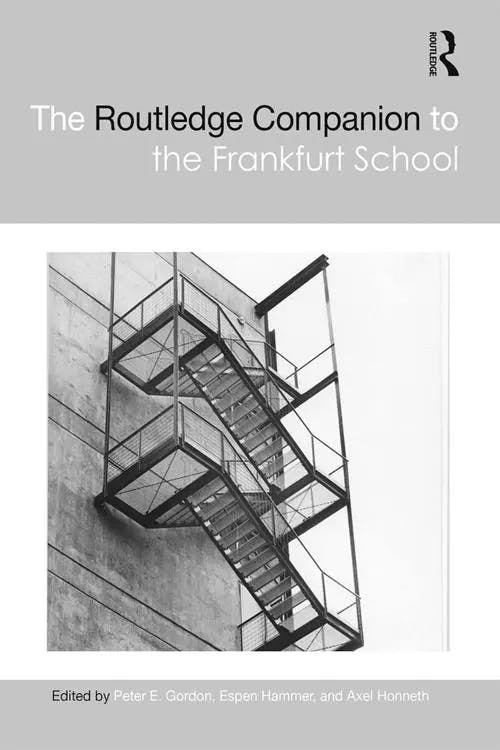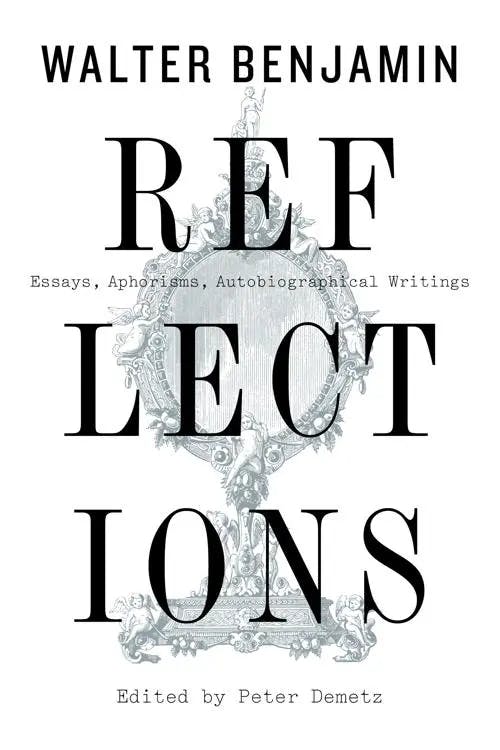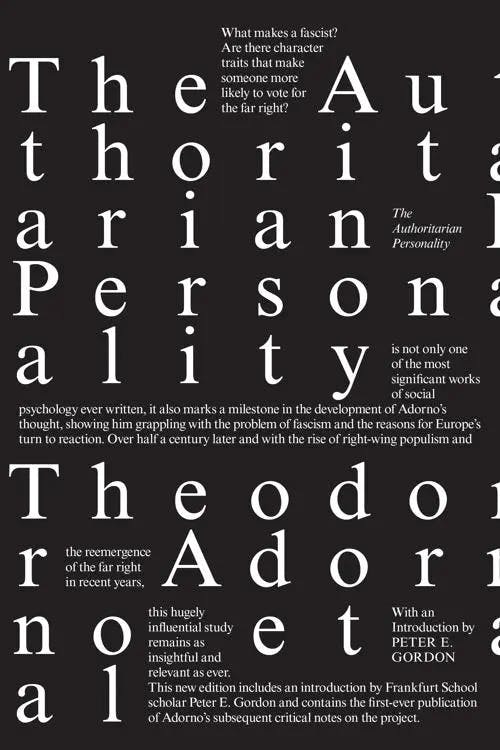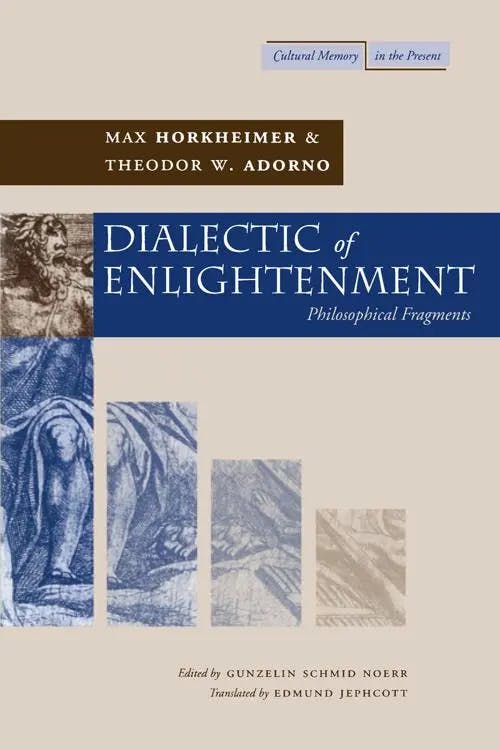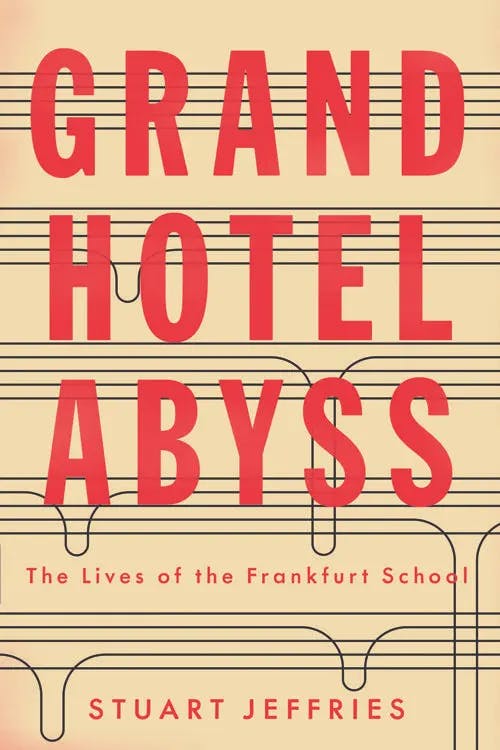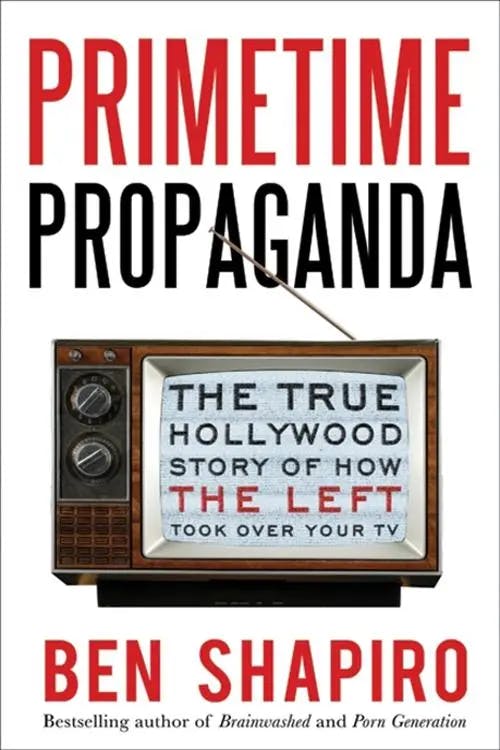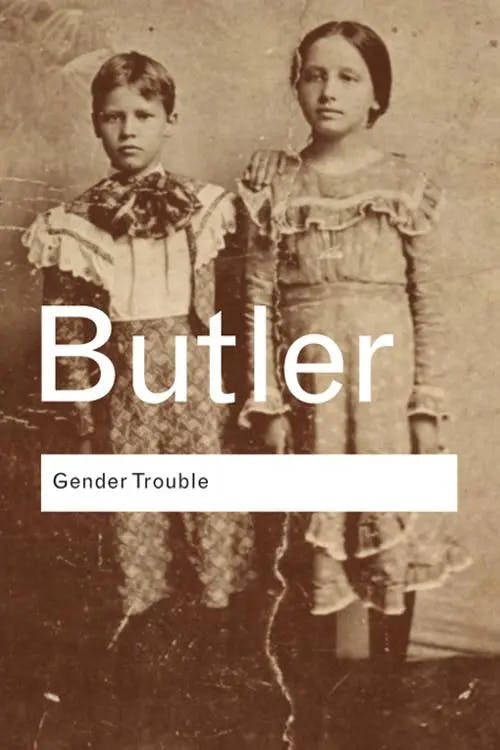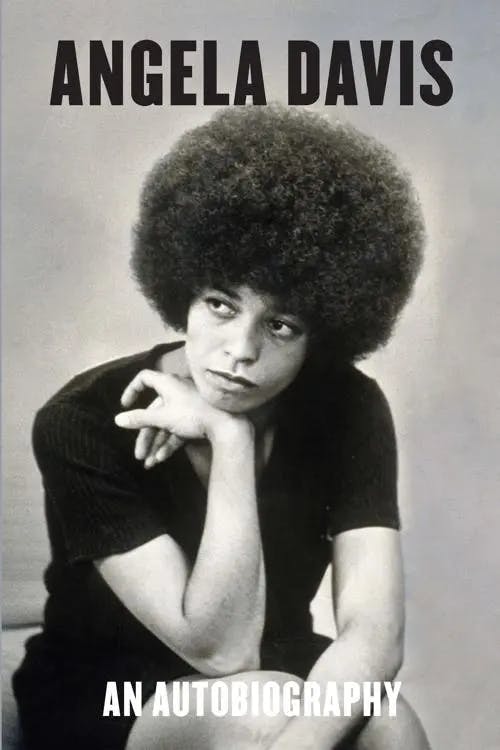What is The Frankfurt School?
MA, Sociology (Freie Universität Berlin)
Date Published: 09.08.2023,
Last Updated: 05.02.2024
Share this article
Origins and key theorists
If you’ve heard of the Frankfurt School, there’s a good chance that it was in the form of criticism. In contemporary times, this elusive institution is increasingly the target of rightwing vitriol for being the inventors of “cultural Marxism,” allegedly out to threaten the core values that define western society. Yet, it has also been subject to critique by some of the most famous western Marxists like the Hungarian philosopher, György Lukács. Meanwhile, its intellectual contributions — particularly in the development of the field of critical theory — remain highly influential in several academic disciplines including sociology, cultural studies, and philosophy. So who was the Frankfurt School exactly, and what were their main ideas?
The origins of the Frankfurt School can be traced back to the Institute of Social Research at the Goethe University Frankfurt, which was founded in 1923. Some of its most notable members and affiliates included Max Horkheimer, Theodor Adorno, Herbert Marcuse, Erich Fromm, and Walter Benjamin. They were very much influenced by the times in which they were writing, and this historical context is quite important in understanding their ideas:
The Frankfurt School first emerged at a moment of great political uncertainty that followed the harrowing experiences of the First World War, the Bolshevik seizure of power in Russia, and the abortive revolution in Germany in late 1918 and early 1919. […]it is perhaps not by coincidence that this troubled era should also have served as a crucible of some of the most consequential movements in cultural modernism. (2018)
Peter E. Gordon, Espen Hammer & Axel Honneth
The Frankfurt School first emerged at a moment of great political uncertainty that followed the harrowing experiences of the First World War, the Bolshevik seizure of power in Russia, and the abortive revolution in Germany in late 1918 and early 1919. […]it is perhaps not by coincidence that this troubled era should also have served as a crucible of some of the most consequential movements in cultural modernism. (2018)
In light of this time period, much of their work was inspired by a sense that preceding forms of social theory, like orthodox Marxism or German Idealism, were inadequate in explaining the rapidly changing times and upheavals of the day. Therefore, Frankfurt School drew upon many different currents of German intellectual thought — namely, Karl Marx, Max Weber, Georg Simmel, Immanual Kant, Friedrich Hegel, and Sigmund Freud — but expanded and adapted their works to better understand the modern condition, as they witnessed the rise of fascism, totalitarianism, and the emergence of mass media and culture.
This study guide examines the intellectual makings of the Frankfurt School as a product of its time. It also provides an overview of the major contributions of their work. To conclude, we will explore in more depth why it has become the subject to so much criticism in recent times, and reflect on the Frankfurt School’s enduring legacy and influence today.
Historical context and influences
World Wars, exile, and totalitarianism
As noted above, key in understanding the works of the Frankfurt School is the fact that it was active during one of the darkest hours in modern history. Living in Germany during the rise of Nazism, its members were directly impacted by fascism and genocide. A number of its affiliates — including Theodor Adorno, Max Horkheimer, and Walter Benjamin — were Jewish. Not to mention, the institute’s left-leaning affiliations made it an enemy of the Nazi regime. As a result, the members of the Frankfurt School were increasingly preoccupied with questions of how modern society begot totalitarianism and atrocity as they had seen it.
Understandably, these experiences caused them to question the status quo in all areas of life. As Walter Benjamin describes it in Reflections, he felt himself resigned to,
pessimism all along the line … Mistrust in the fate of literature, mistrust in the fate of freedom, mistrust in the fate of European humanity, but three times mistrust in all reconciliation: between classes, between nations, between individuals. (2019)
Walter Benjamin
pessimism all along the line … Mistrust in the fate of literature, mistrust in the fate of freedom, mistrust in the fate of European humanity, but three times mistrust in all reconciliation: between classes, between nations, between individuals. (2019)
Writers like Adorno and Horkheimer were also highly influenced by their experiences of exile, for instance, in the United States where they observed similarly totalitarian tendencies of social repression, conformity, and control in consumer capitalist society.
These historical factors help us understand the scope and themes of their work. In light of their experiences, they sought to develop a more comprehensive framework through which to understand contemporary society, as they felt that no existing school of thought could do so on its own. To do this, they drew on an interesting array of influences including the German idealist philosophers, Marxian historical materialism, Freudian psychoanalysis, and more. Taken together, these formed the foundations for the discipline of critical theory.
Marxian historical materialism
One of the central founding influences of the Frankfurt School is Marxism, a social and political philosophy named after Karl Marx. In particular, the Frankfurt School engages with Marxian historical materialism — the idea that the underlying force driving societies are their relations of production and the struggles between social classes that emerge from them. They used this historical materialist approach to understand the unprecedented issues that shaped their social context. They believed, therefore, that capitalism and class were central factors in dictating how power was distributed and exerted within society.
(To read more about Marxian historical materialism, check out our study guide “What is Dialectical Materialism?”)
Yet, rather than being orthodox Marxists who strictly adhered to Marx’s writings as if it were dogma, the Frankfurt School also expanded upon these ideas to better fit with the form of advanced capitalism under which they were writing. For starters, whereas Marx believed the struggles between classes would result in social revolution, the Frankfurt School was deeply affected by the failed communist revolution in Germany. Thus, as Gordon et al. argue,
The apparent failure of the working classes in Western Europe to emerge after the First World War as a self-conscious and genuinely revolutionary collective prompted a reexamination of the category of consciousness itself. The specific problem of working-class consciousness, alongside more general questions of ideology and culture, would emerge as the focal point for Western Marxist theorists[…]A similar emphasis on consciousness and its modern distortions in bourgeois society was to become a dominant though by no means exclusive concern for the theorists associated with the Frankfurt School. (2018)
Peter E. Gordon, Espen Hammer & Axel Honneth
The apparent failure of the working classes in Western Europe to emerge after the First World War as a self-conscious and genuinely revolutionary collective prompted a reexamination of the category of consciousness itself. The specific problem of working-class consciousness, alongside more general questions of ideology and culture, would emerge as the focal point for Western Marxist theorists[…]A similar emphasis on consciousness and its modern distortions in bourgeois society was to become a dominant though by no means exclusive concern for the theorists associated with the Frankfurt School. (2018)
Rather than being inherently inclined toward social revolution, they saw that classed societies could instead produce mass destruction and totalitarianism as they had witnessed via the rise of Nazism, World War II, and the Holocaust.
Furthermore, through their experiences living in exile in the United States during the rise of mass consumerism and mass media, they were also interested in the more subtle ways in which the capitalist class exerts power and control through ideology and culture rather than by brute force. It was through this particular fixation that the so-called “cultural Marxism” emerged. On this front, they adapted Marxist theory to better engage with the complexities of late capitalism.
Freudian psychoanalysis
Another way the Frankfurt School departed from orthodox Marxism was by melding it with the psychoanalytic works of figures like Sigmund Freud (1856–1939). They were interested in understanding the ways in which totalitarianism could take hold in societies, and the psychological impacts of mass culture on the individual, their sense of agency, and capacity for liberation. They were particularly inspired by Freud’s work on the unconscious as laid out in The Ego and the Id (1923, [2018]). They used the ideas laid out in this text to explore the ways in which both totalitarianism and mass culture tap into and manipulate people’s subconscious desires. In particular, Erich Fromm, Theodor Adorno, and Herbert Marcuse integrated these ideas into their analyses of ideology, culture, and society.
(To learn more about Freudian psychoanalysis, check out our study guide, “What is Freud's Psychoanalytic Theory?”)
In his study, The Authoritarian Personality, for instance, Adorno used psychoanalytic concepts to understand the rise of fascism and the Holocaust. He drew upon Freud’s psychological development model to examine how people are susceptible to fascist ideology and the appeal of authoritarian rule. As Adorno explains in this study of the authoritarian personality,
[…]the well-known Freudian concepts involved are the id, ego,and super-ego. In accordance with psychoanalytic usage these three structural concepts are employed to differentiate and subsume the diversity of motivations (or forces) comprising the organized totality conceptualized as personality. (2019)
Theodor Adorno
[…]the well-known Freudian concepts involved are the id, ego,and super-ego. In accordance with psychoanalytic usage these three structural concepts are employed to differentiate and subsume the diversity of motivations (or forces) comprising the organized totality conceptualized as personality. (2019)
Here, the id refers to our primal instincts, the ego represents our conscious selves, and the superego speaks to the moral component of our personality. Using this framework, he theorized about the role of parenting and other formative experiences that make people susceptible to fascism and authoritarianism as adults. For example, he suggested that the presence of a strong superego — resulting from harsh parenting — leads people toward conforming to strict norms and conventions externally imposed by society as adults.
Contributions of the Frankfurt School
The dark side of the Enlightenment
In order to understand the problems of the modern world, the Frankfurt School believed that it was necessary to revisit some of the core defining principles of the age of modernity. In the Dialectic of Enlightenment, published by Max Horkheimer and Theodor Adorno in 1947, they disclose that,
What we had set out to do was nothing less than to explain why humanity, instead of entering a truly human state, is sinking into a new kind of barbarism. (1947, [2002])
Max Horkheimer & Theodor W. Adorno
What we had set out to do was nothing less than to explain why humanity, instead of entering a truly human state, is sinking into a new kind of barbarism. (1947, [2002])
To do so, they start by taking the revered precepts of the Enlightenment, such as liberalism and rationalism, off their pedestals to critically examine them and the repercussions they have had on modern society. As a result they conclude that,
[The] Enlightenment, understood in the widest sense as the advance of thought, has always aimed at liberating human beings from fear and installing them as masters. Yet the wholly enlightened earth is radiant with triumphant calamity. (Horkheimer & Adorno, 1947, [2002])
For them, writing in exile during the wake of World War II and the Holocaust, they question the role of human “progress,” so often hailed as an Enlightenment ideal, because it had brought society to the point of ruin. In this sense, they expose the “dark side” of the Enlightenment by tracing how it helped to give rise to our modern predicament that, they argue, is susceptible to authoritarianism and social dislocation. Instead, in their view, rationalism and objectivity are prevalent dimensions of totalitarian societies, turning humans into automatons whose creative and free essence is suppressed under these same tendencies.
The culture industry
Similarly, Adorno and Horkheimer observe the makings of this authoritarian, socio-psychological status quo in the consumer capitalist societies of the United States, where they argue marketing and mass media foster conformity and docility among people on a widespread scale. Living and working in Berkeley California, they detail these observations in the 1969 edition of their essay, “The Culture Industry: Enlightenment and Mass Deception,”
Culture now impresses the same stamp on everything. Films, radio and magazines make up a system which is uniform as a whole and in every part. (Dialectic of Enlightenment, 1969 [2016])
In their writings on this topic, they delve into how modern tendencies toward uniformity, objectivism, and standardization that they witnessed in Nazi Germany are also prevalent in the consumer capitalist societies of their place of exile: the United States.
As a result, Adorno and Horkheimer contended that mass culture was produced under capitalism in a formulaic way meant to maximize profit by manipulating people’s emotions and attention. Some examples of this include how contemporary pop music relies on very similar sounds and tempos; the fact that daytime soap operas were created with the primary purpose of airing commercials for common household products; and even the fact that the news media prioritizes the most shocking and distressing stories because they promote higher viewer engagement.
Moreover, for Adorno as well as Horkheimer, culture was increasingly produced en masse on the factory production line — rather than by genuine forms of human creative expression. In turn, through the consumption of mass media, people were subtly being coerced into conforming to the dominant ideologies of the ruling classes.
The culture industry is not the art of the consumer but rather the projection of the will of those in control onto their victims. The automatic self-reproduction of the status quo in its established forms is itself an expression of domination. (1947, [2020])
Theodor W. Adorno
The culture industry is not the art of the consumer but rather the projection of the will of those in control onto their victims. The automatic self-reproduction of the status quo in its established forms is itself an expression of domination. (1947, [2020])
In this sense, they believed that the commodification of culture also serves as a means of pacification and social control. Mass culture, therefore, inhibited people’s capacity to think for themselves or to define their identities outside of their consumption habits.
(To read more about the culture industry, check out our study guide, “What is the Culture Industry?”)
Social transformation and emancipatory politics
Much of the core works, contributions, and overall outlook of the Frankfurt School paint a rather pessimistic view of the world. It can be easy to read the aforementioned texts and be left with a sense that the state of the world is hopeless beyond saving. Yet, among the thinkers of the Frankfurt School is Herbert Marcuse, who believed that there was still the potential for emancipation and transformation of the current predicaments plaguing the modern world. For example, his text, One-Dimensional Man (1964), begins with similar views about the ways in which modern capitalism creates sameness and how every aspect of society is geared towards consumption and production of commodities for profit. He laments this status quo, which creates “one-dimensional” people whose identities are expressed through consumerism above all else.
Yet, he doesn’t stop with these critiques, and instead concludes the text with reflections on the capacity for people to achieve alternatives through what he calls the “Great Refusal” against this kind of one dimensionality. Through the Great Refusal,
[...] the sensitive individual can still stage his own personal revolt… Saying “no” to the false allures of the consumer-oriented technology, he can turn inward -liberating himself by pursuing a new life-style more closely attuned to Eros. (2020)
Intelligent Education
[...] the sensitive individual can still stage his own personal revolt… Saying “no” to the false allures of the consumer-oriented technology, he can turn inward -liberating himself by pursuing a new life-style more closely attuned to Eros. (2020)
As part of this argument, Marcuse used the Freudian concept of Eros — “our pleasure-oriented Life Instinct” — as the key for making the Great Refusal, as a way for people to tap into their agency and effect social change.
Thus, the Great Refusal refers to the radical rejection of the status quo that requires the repression of the true self for the sake of profit. It is a call to renounce the commodification of human life by instead tapping into Eros. If we can succeed in doing so, Marcuse argues that the Great Refusal can be the impetus towards creating a society not dominated by market relations but that instead centers creativity, authenticity, and freedom. He believed this held the key for emancipation from the current iteration of advanced, consumer capitalism.
Critiques of the Frankfurt School
As alluded to in the opening of this study guide, the Frankfurt School has been enormously influential in academia as well as in cultural discourse and social movements. They have also been criticized by both the left and, increasingly today, the right — albeit for different reasons. This study guide, therefore, concludes with an overview of some of their most significant impacts and contentions of the Frankfurt School in contemporary times.
Lukacs and the Western Marxists’ contentions
Despite the fact that, in many ways, the Frankfurt School has been an inheritor of Marxian theory, it has faced significant criticism from other Marxists for the ways in which they have departed from some of the key dimensions of Marxian thought. Famously, for instance, the prominent western Marxist philosopher, György Lukács:
[...] Lukács once charged that Adorno and other members of the Frankfurt School had taken up residence in what he called the Grand Hotel Abyss. This beautiful hotel was, he wrote, ‘equipped with every comfort, on the edge of an abyss, of nothingness, of absurdity’. (Jeffries, 2016)
Stuart Jeffries
[...] Lukács once charged that Adorno and other members of the Frankfurt School had taken up residence in what he called the Grand Hotel Abyss. This beautiful hotel was, he wrote, ‘equipped with every comfort, on the edge of an abyss, of nothingness, of absurdity’. (Jeffries, 2016)
In other words, Lukacs argued that even though the writers associated with Frankfurt School may have been virtuosos in developing theory inspired by Marxian thought, their works increasingly lost their substance. This was because they moved away from perhaps the most important dimension of Marx’s work: the capacity for theory to inspire praxis and spur a working class revolution. Grand Hotel Abyss drives this point home with an anecdote about Adorno calling the police on leftist student protestors who were demonstrating at the Institute for Social Research in 1969.
Rightwing conspiracies starring the Frankfurt School
In our contemporary social climate, it is also worth addressing the ways that the right has come after the Frankfurt School as a scapegoat for various progressive tendencies in contemporary culture and academia. As Kit Messham-Muir and Uroš Cvoro argue in their book, The Trump Effect in Contemporary Art and Visual Culture, many figures on the alt-right including Ben Shapiro and Jordan Peterson, for instance, have targeted the Frankfurt School as the source of conspiracy that “cultural Marxism” is taking over our institutions.
What was the Frankfurt School? It was a group of philosophers dedicated to “cultural Marxism,” the implementation of Marxism in capitalist countries through cultural means—in other words, they wanted to take over countries by taking over American institutions like campuses, the media, and Hollywood. The Frankfurt School saw that traditional Marxism had been unable to penetrate capitalist society in pure economic terms, and they decided to direct their efforts toward a cultural takeover. (2011)
Ben Shapiro
What was the Frankfurt School? It was a group of philosophers dedicated to “cultural Marxism,” the implementation of Marxism in capitalist countries through cultural means—in other words, they wanted to take over countries by taking over American institutions like campuses, the media, and Hollywood. The Frankfurt School saw that traditional Marxism had been unable to penetrate capitalist society in pure economic terms, and they decided to direct their efforts toward a cultural takeover. (2011)
Quite interestingly, these accusations are strikingly similar to the Frankfurt School’s own work on topics such as the culture industry.
Legacy of the Frankfurt School
Critical theory and academia
Despite the enduring critiques against the Frankfurt School, it remains highly influential. Within the sphere of academia, for example, the Frankfurt School’s development and contributions to the field of critical theory is perhaps one of its greatest legacies. Their works continue to be read and applied in the disciplines of sociology, philosophy, and cultural studies as a result. In turn, their works have influenced a lengthy roster of intellectuals including Frederic Jameson, Axel Honneth, Paolo Freire, Jürgen Habermas, and Judith Butler. These thinkers have expanded upon their works of critical theory in myriad ways.
(To read more about the topic of critical theory, check out our study guide, “What is Critical Theory?”)
Whereas the critical theory of the Frankfurt School focused on how capitalism, consumerism, and class relations intertwine to form structures of power and social control, others have further developed these ideas to examine other reified systems of power along the lines of colonialism, race, and gender. For instance, in Judith Butler’s work on queer theory and gender performativity, she asks,
[...] what is gender, how is it produced and reproduced, what are its possibilities? At this point, the sedimented and reified field of gender “reality” is understood as one that might be made differently and, indeed, less violently. (2011)
Judith Butler
[...] what is gender, how is it produced and reproduced, what are its possibilities? At this point, the sedimented and reified field of gender “reality” is understood as one that might be made differently and, indeed, less violently. (2011)
Much like subtle forms of cultural Marxism exert social control onto people living in classed societies, Butler argues that gender is something that is imposed externally onto us through culture and that we must conform to it in how we behave and move through the world.
Activism, liberation movements, and social change
The influence of the Frankfurt School also extends beyond the ivory tower of academia to the domains of activism and movement building. This is most exemplified by the relationship between Herbert Marcuse and Angela Davis, a prominent Marxist-feminist. Davis studied under Marcuse at Brandeis and subsequently he served as the advisor for her PhD. Marcuse and his wife visited her in jail when she was held as a political prisoner in California. In her biography she describes her formative experiences as an activist and intellectual,
I read all of Adorno’s and Horkheimer’s works that had been translated into English or French, in addition to Marcuse’s writings. In this way I had acquainted myself with their thought, which was collectively known as Critical Theory. (2022)
Angela Davis
I read all of Adorno’s and Horkheimer’s works that had been translated into English or French, in addition to Marcuse’s writings. In this way I had acquainted myself with their thought, which was collectively known as Critical Theory. (2022)
Moreover, Marcuse’s work on concepts such as the Great Refusal was also highly influential in several movements of the 1960s including the anti-war movement, civil rights, and student protests in both US and Frankfurt. Despite its criticisms, there is no doubt that the legacy of the Frankfurt School endures in its influence on contemporary thought — in and out of academia — as well as on liberation movements around the world.
Further reading on Perlego
Adorno, T., and Jephcott, E.F.N. (2018) Minima Moralia. Verso. Available at: https://www.perlego.com/book/871866/minima-moralia-reflections-from-damaged-life-pdf
Benjamin, W. (1968). Illuminations. Houghton Mifflin Harcourt. Available at: https://www.perlego.com/book/2418924/illuminations-essays-and-reflections-pdf
Felluga, D.F. (2015) Critical Theory: Key Concepts. Routledge. Available at: https://www.perlego.com/book/1559357/critical-theory-the-key-concepts-pdf
Horkheimer, M. (2013). Eclipse of Reason. Bloomsbury Academic. Available at: https://www.perlego.com/book/1980332/eclipse-of-reason-pdf
Slater, P. (2020) Origin and Significance of the Frankfurt School (RLE Social Theory). Routledge. Available at: https://www.perlego.com/book/1629808/origin-and-significance-of-the-frankfurt-school-rle-social-theory-a-marxist-perspective-pdf
Tomrey, S., and Townshend, J. (2006) Key Thinkers from Critical Theory to Post-Marxism.
SAGE Publications Ltd. Available at: https://www.perlego.com/book/861449/key-thinkers-from-critical-theory-to-postmarxism-pdf
What is the Frankfurt School in simple terms?
What is an example of a theory by the Frankfurt School?
Who are the figures associated with the Frankfurt School?
Bibliography
Adorno, T., and Frenkel-Brunswik, E. (2019) The Authoritarian Personality. Verso. Available at: https://www.perlego.com/book/982618/the-authoritarian-personality-pdf
Adorno, T. W. (2020) The Culture Industry. Routledge. Available at: https://www.perlego.com/book/1629142/the-culture-industry-selected-essays-on-mass-culture-pdf
Benjamin, W. (2019) Reflections. Mariner Books Classics. Available at: https://www.perlego.com/book/3184074/reflections-essays-aphorisms-autobiographical-writings-pdf
Butler, J. (2011) Gender Trouble. Routledge. Available at: https://www.perlego.com/book/1607112/gender-trouble-feminism-and-the-subversion-of-identity-pdf
Davis, A.Y. (2022) Angela Davis: An Autobiography. Haymarket Books. Available at: https://www.perlego.com/book/2580495/angela-davis-an-autobiography-pdf
Gordon, P.E., Hammer, E., and Honneth, A. (2018) The Routledge Companion to the Frankfurt School. Routledge. Available at: https://www.perlego.com/book/1520544/the-routledge-companion-to-the-frankfurt-school-pdf
Horkheimer, M., and Adorno, T. W. (2002) Dialectic of Enlightenment. Stanford University Press. Available at: https://www.perlego.com/book/745055/dialectic-of-enlightenment-pdf
Horkheimer, M., and Adorno, T. W. (2016) Dialectic of Enlightenment. Verso. Available at: https://www.perlego.com/book/730948/dialectic-of-enlightenment-pdf
Intelligent Education. (2020) Study Guide to the Theories of Herbert Marcuse. Influence Publishers. Available at: https://www.perlego.com/book/2931422/study-guide-to-the-theories-of-herbert-marcuse-pdf
Jeffries, S. (2016) Grand Hotel Abyss. Verso. Available at: https://www.perlego.com/book/731252/grand-hotel-abyss-the-lives-of-the-frankfurt-school-pdf
Marcuse, H. (2013). One Dimensional Man. Routledge. Available at: https://www.perlego.com/book/1604665/onedimensional-man-studies-in-the-ideology-of-advanced-industrial-society-pdf
MA, Sociology (Freie Universität Berlin)
Lily Cichanowicz has a master's degree in Sociology from Freie Universität Berlin and a dual bachelor's degree from Cornell University in Sociology and International Development. Her research interests include political economy, labor, and social movements. Her master's thesis focused on the labor shortages in the food service industry following the Covid-19 pandemic.

